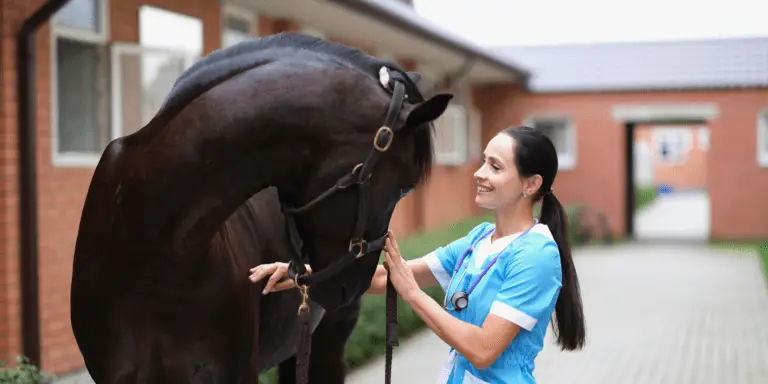
Organs of the Horse – Take a Look Inside
Just as it is with humans, the horse’s skin is the largest organ of the body. However, this blog post is dedicated to the organs that we cannot see from the outside. Let’s take a look inside the horse and
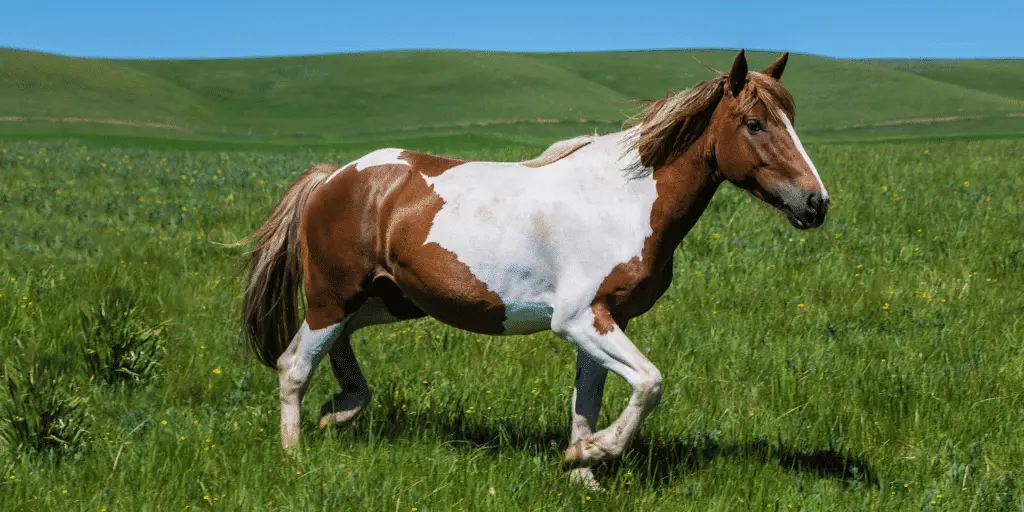
When grooming and saddling, you can easily check your horse’s body for symptoms. In this blog post you can read about symptoms of the horse’s body and what they could mean.
A sore back can be caused by many things. Among other things, trauma, overuse, arthritis, kissing spines or improper saddlery can be the cause for a sore back.
If your horse’s back is swollen and/or hot, this may be a symptom of saddle pressure and you should check with a saddler.
The muscles also give you information about the health of your horse. If you observe muscle atrophy in your horse, the cause is often metabolic, but it can also be caused by neurological problems or nerve damage.
If you notice that your horse’s muscles are unusually hard, this may be caused by parasites, an immune disorder or even a viral or bacterial infection and you should check that with your vet.
The horse’s digestive tract is a complex system. Therefore, you should regularly listen for digestive sounds.
Excessive sounds indicate cramps or hyperactivity.
If you do not hear intestinal sounds or hear them only rarely, you should act quickly. Your horse may be suffering from colic, poisoning or other illnesses.
The legs also give you information about the well-being of your horse. You should observe whether the legs are cold, hot, swollen or stiff.
Cold legs indicate reduced blood circulation or nerve damage.
Hot legs are a sign of stress or trauma.
If you notice swelling of the legs, check your horse for trauma, possible overloading or if your horse may be eating too much grain.
Overwork, colic, respiratory, neurological or muscular diseases often show up as stiff legs.
The posture of your horse is a good indicator of possible health problems.
Look for lethargy, frequent twitching, stretching, cramping, partial or full paralysis or stiffness.
Lethargy is a sign of disease, low blood sugar, overwork or dehydration.
Horses that often twitch may also be infested with insects or parasites, or suffer from infection or an immune disorder, among other things.
Brain disorders, metabolic disorders or poisoning are often accompanied by seizures.
If your horse is affected by partial or total paralysis, then an examination for tick bites, trauma, poisoning, nerve damage, strokes or other diseases is recommended.
Repeated stretching is a symptom of colic or laminitis.
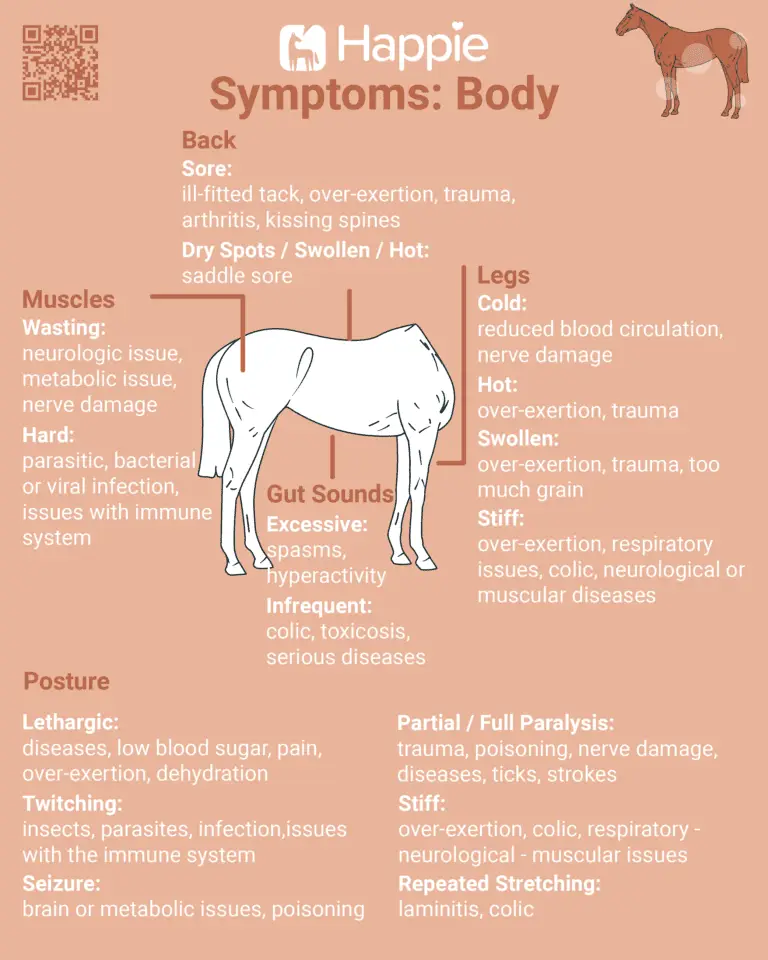
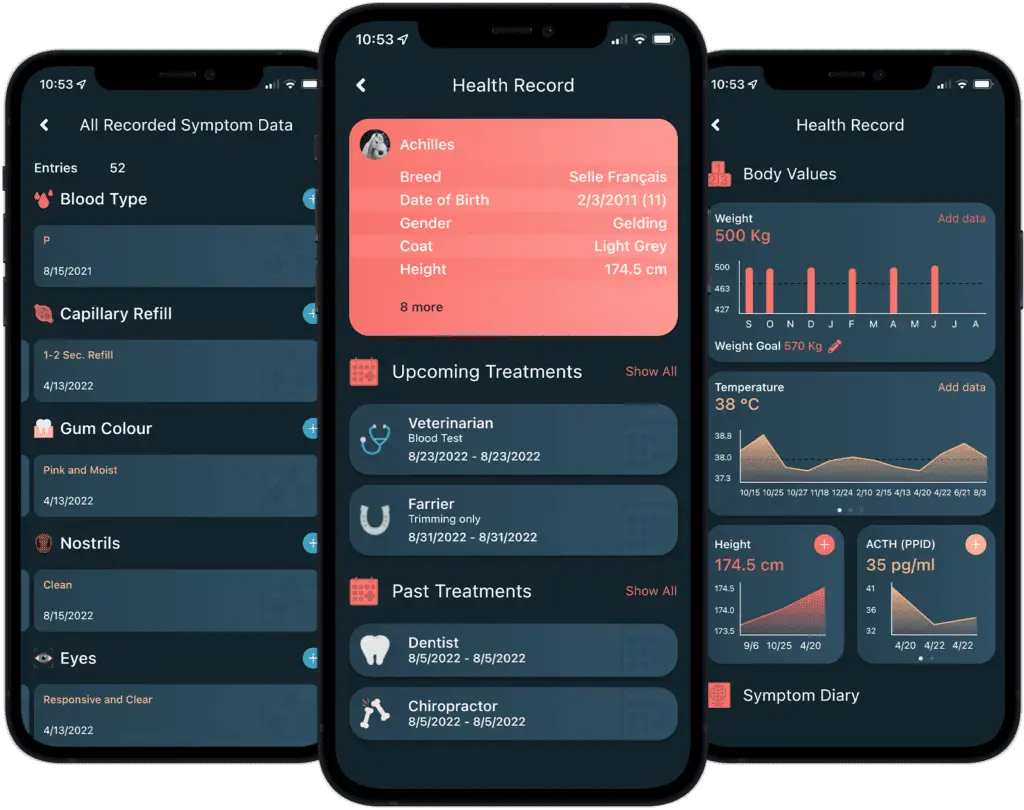

Just as it is with humans, the horse’s skin is the largest organ of the body. However, this blog post is dedicated to the organs that we cannot see from the outside. Let’s take a look inside the horse and
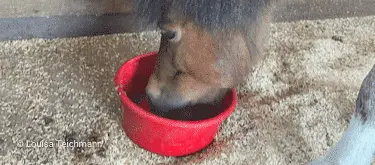
Expert Advice: Kim Lina Pethahn, an independent feed consultant, wrote this article. Offering the Necessities & Avoiding Overdosages Whether your horse needs supplements at all depends on both the pre-existing conditions and the energy consumption of your horse. However, an
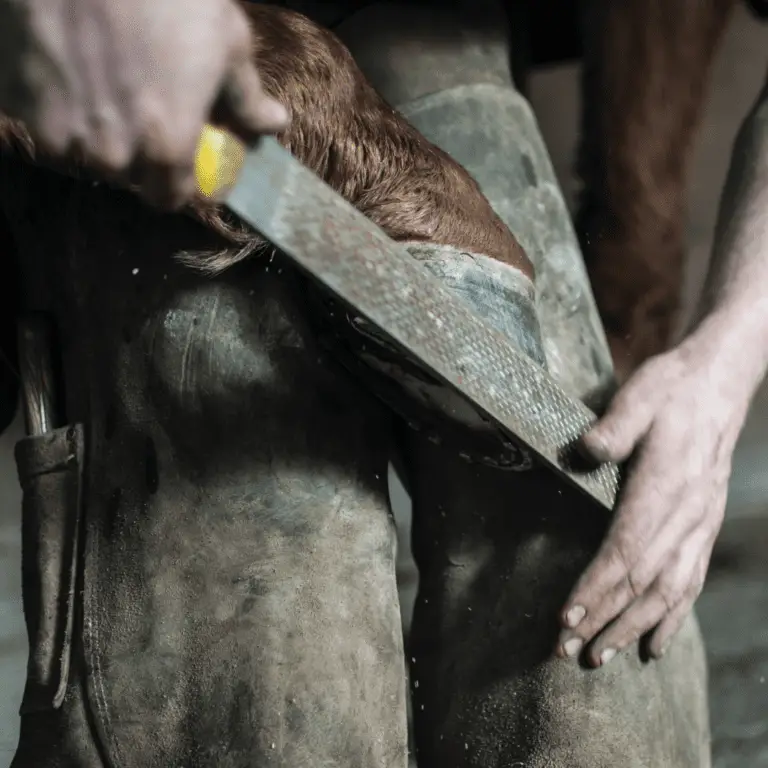
For a healthy foundation Hoof care is an important part of equine health care. The hooves are the foundation of the horse and bear the entire body weight of the animal. Regular hoof care is therefore essential to maintain healthy
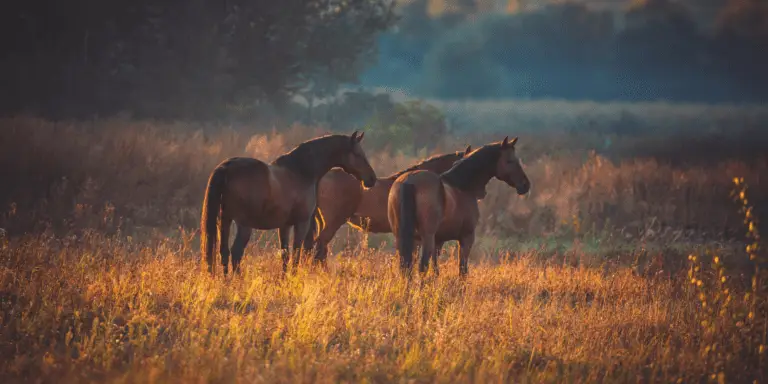
Horses are sturdy creatures, but they can be sensitive to extreme weather conditions. Here you can read about the impact of temperature and humidity on your horse and what measures to take to ensure your horse’s well-being. What You Need
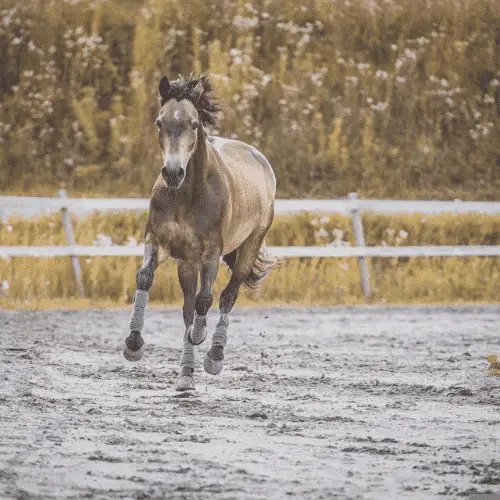
Constant Free Movement in Herds Can Help Against Obesity We always talk about how feed can affect a horse’s weight but feed is not the only thing that can and should be considered when helping a horse lose weight sustainably.
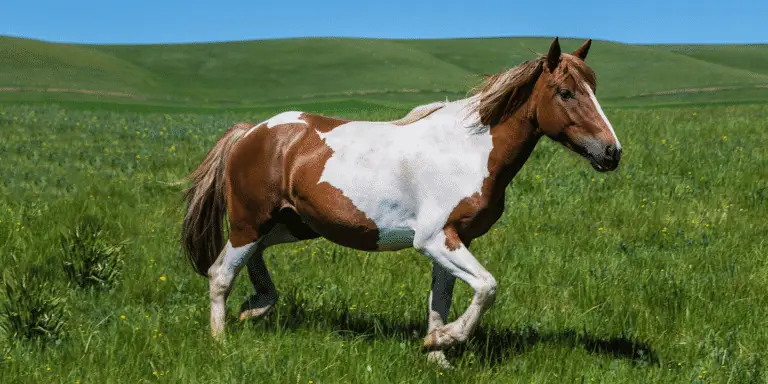
When grooming and saddling, you can easily check your horse’s body for symptoms. In this blog post you can read about symptoms of the horse’s body and what they could mean. Everything About Symptoms on the Horse Body A Sore